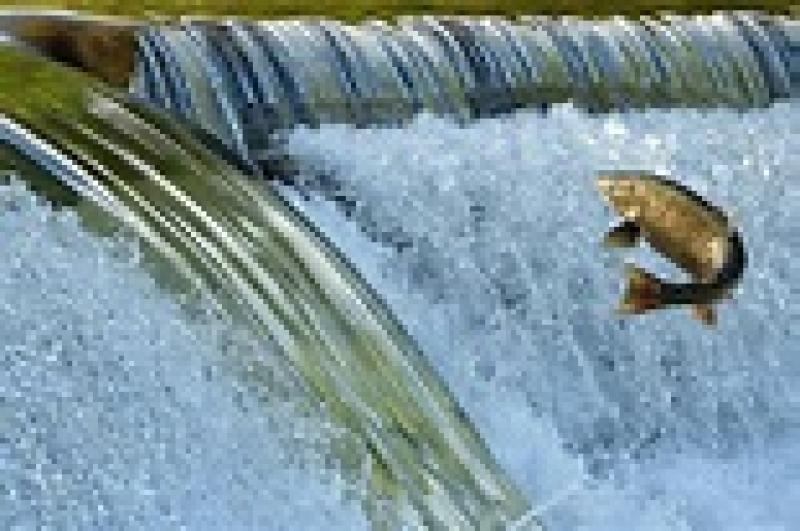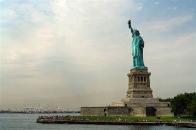US approves largest dam removal in history to save endangered salmon
By: the Guardian



Four dams on California-Oregon border to be decommissioned on Klamath River, which fish use to reach spawning grounds
A US agency seeking to restore habitat for endangered fish gave final approval on Thursday to decommission four dams straddling the California-Oregon border, the largest dam removal undertaking in US history.
Dam removal is expected to improve the health of the Klamath River, the route that Chinook salmon and endangered coho salmon take from the Pacific Ocean to their upstream spawning grounds, and from where the young fish return to the sea.
'We're dwindling like the salmon': the Indigenous nations fighting for water rights Read more
The US Federal Energy Regulatory Commission issued an order surrendering the dam licenses and approving removal of the dams.
The project has long been a goal of several Native tribes whose ancestors have lived off the salmon for centuries but whose way of life was disrupted by European settlement and the demand for rural electrification in the 20th century.
"The Klamath salmon are coming home," Joseph James, chairman of the Yurok tribe, said in a statement. "The people have earned this victory and with it, we carry on our sacred duty to the fish that have sustained our people since the beginning of time."
Climate change and drought have also stressed the salmon habitat; the river has become too warm and too full of parasites for many fish to survive.
The dams on federal land, which at full capacity provide enough electricity for 70,000 homes, will be surrendered by the power utility PacifiCorp, a unit of Warren Buffett's Berkshire Hathaway.
Faced with costly new regulations that included building fish screens and ladders, the company instead entered an agreement with the tribes and the US government to decommission the dams.
PacifiCorp is contributing $200m toward dam removal, paid for by a surcharge on its customers in Oregon and California, said Bob Gravely, a company spokesperson, and California voters approved a bond measure for the state to provide an additional $250m.





"The Klamath salmon are coming home," Joseph James, chairman of the Yurok tribe, said in a statement. "The people have earned this victory and with it, we carry on our sacred duty to the fish that have sustained our people since the beginning of time."
We'll let's hope this saves the Salmon. It was quite a trade-off.
“…let's hope this saves the Salmon.”
Let us hope this just a beginning in reminding us that we need to be responsible stewards of the natural resources which we have been gifted.
So says every bird that makes the mistake of flying over the California Mojave desert solar panel field and gets fried; and every condor and Golden Eagle that gets killed by California wind turbines.
https://www.wind-watch.org/news/2009/10/07/wind-turbines-are-killing-condors/#:~:text=The%20number%20one%20cause%20of,of%20prey%20die%20each%20year.
I guess "going Green" doesn't make for being responsible stewards.
Sure they do because oil and coal are clean?
Well, that's fine as long as it doesn't become a justification to divert water from the Great Lakes to California. Removal of the dams will have a larger impact on irrigation for agriculture than on electricity generation.
The movement promoting a vegetarian diet to mitigate climate change was thrown under the bus. Maybe salmon can be classified as vegetables?